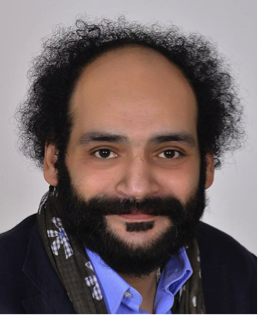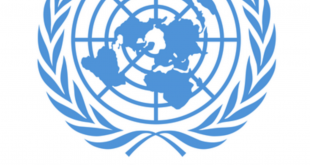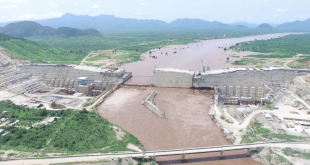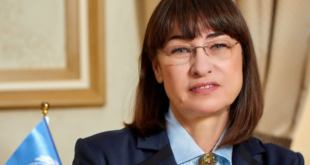Modes of collective action are again transforming in the Arab world, to which Arab states will be obliged to respond.
Ziad Akl
Over the past few weeks, the Arab world domestic politics has witnessed several transformations. Various Arab states are subject to a new set of challenges that match the new regional political context. Quick analysis of the situation reveals political tensions in Syria, Libya, Tunisia, Algeria, Egypt and Sudan. New political disturbances require a transformation in the role of the state in each case. The legacy of 2011 regarding political unrest is being changed significantly.
There is a very close connection between the political context and the activities of collective action. The public does not mobilise in response to single initiative or a random call for taking to the street (in political sociology terms). At this juncture changes in the rules and dynamics of collective action different to that of 2011 have prevailed.
Protracted conflicts like Syria, for example, are based more on the course of the confrontation in military action than collective mobilisation. The longevity of the conflict and the intervention of multiple international and regional powers have changed the rules of collective action in zones of conflict in the Arab world, including Syria. Since the change in dynamics, Syria has been following a pattern other than the one it witnessed in 2011. The year 2011 witnessed an ascent of collective action. However, the on going conflict made the regular pattern of collective action more dependent on the use of force, meaning that political formations are not necessarily effective like they used to be.
Libya, on the other hand, witnesses a completely different pattern of conflict. A separation, both political and geographical, between the East and the West has been taking place in Libya since 2014. The Libyan south remains an unanswerable question, but the international community is still primarily concerned with the East-West struggle and its implications. There are definitely lots of criticism on the role of the UN in the Libyan interior. Several promises have been made and timed without actual fulfilment. Tensions in North Africa made the Neighbouring Countries mechanism less effective within the Libyan file. The roles of Russia, the United States and EU are expected to increase and escalate within the Libyan conflict in light of a turning away from regional powers and alliances.
Egypt is indeed a major and an integral counterpart within that scene. In comparison to other cases in the Arab Spring, Egypt is rather stable and is quite rid of the political contentions it witnessed since 2011. The pattern of collective action in Egypt underwent significant changes. There was in 2004 till 2011 an ascending order that witnessed various movements that rest on collective action who were trying to exist within the public sphere, starting with the National Campaign to support the Palestinian Intifada, all the way to the “We are all Khaled Said” movement. Collective action and the formation of non-institutional movements are no operating in the same manner.
Tunisia is a unique model within the socio-political changes in the Arab world. Unlike many other places in the Arab world, Tunisia has a politically influential civil society that is a counterpart with the state in Tunisian politics. The recent elections following the death of President Essebsi saw unconventional candidates win who will go through another electoral round. Expelling the Islamist stream from the picture demonstrates the strength of Tunisian civil society and its influence on shaping public opinion. While Tunisia witnessed an ascending order in collective action before 2011, the last elections prove that a change within the pattern has taken place. This means that political parties and civil society in Tunisia have instilled themselves as actors in an institutional political process, which reduces the random influence of the street on decision making in favour of the state’s mechanisms.
Both Algeria and Sudan are still in interim phases that do not necessarily promise timed or concrete results. Collective action in the two countries, or contentious politics in other terms, is at a peak. Transitional entities are being formed in both scenes equally, but without much of a long-term vision. Both states are an integral part in a regional equation of national security and a matrix of international interests in Africa. The outcome of the transformations they are witnessing will certainly have implications on the Arab world as a whole, specifically concerning security.
An overall analysis of this scene proves that there is a state of transformation within collective action and political tension within the Arab world. One of those transformations is the change in patterns of collective action, which suddenly became easier to realise in comparison to 2011. The role of social media was for sure one of the influential tools in this regard. There is also an important shift in the acting political and social forces in the Arab world. It is true that every case has its own context, but there is also a similar pattern being repeated all over the zones of conflict or political tension in the Arab world.
The Arab world is seeing various challenges and several transformations. The mode of collective action is one of the main changes within a rapidly evolving political scene. In the end, it comes down to the quality of cohesion within each polity. Zones of conflict will have to negotiate future courses of action with new alliances of regional and international powers. Meanwhile, the Arab world will have to revise its relations with different actors in Europe according to the wave of political change taking place there as well. With all these givens taken into account, it is likely we will witness a change in regional and international politics in the Middle East and North Africa over the coming year.
*The writer is a senior researcher and director of the Programme for the Mediterranean and North Africa Studies at the Al-Ahram Centre for Political and Strategic Studies.
From: Al-Ahram Weekly






